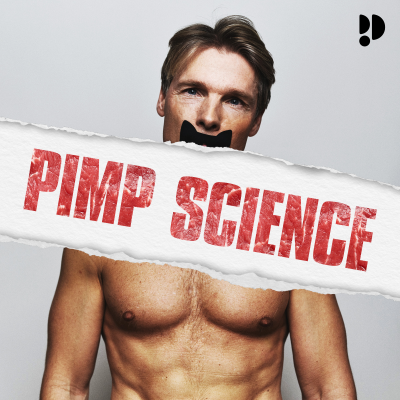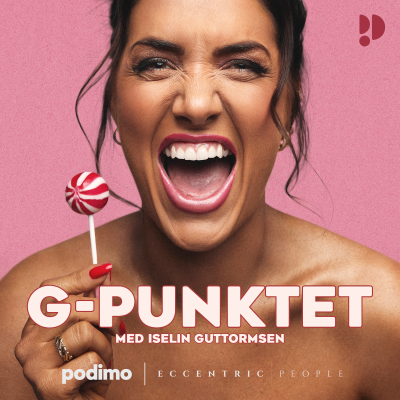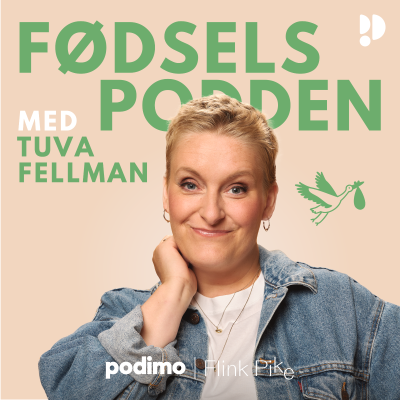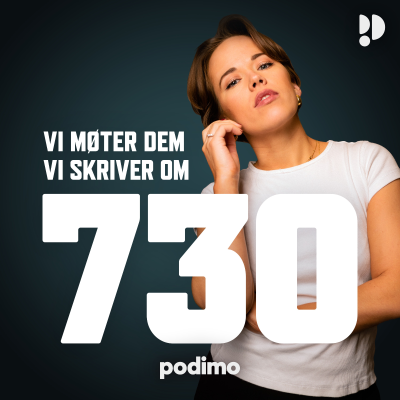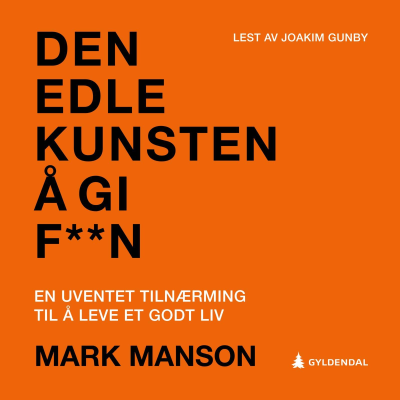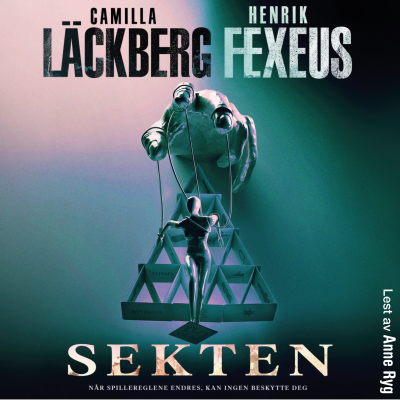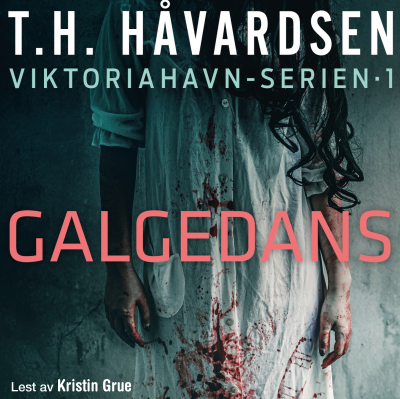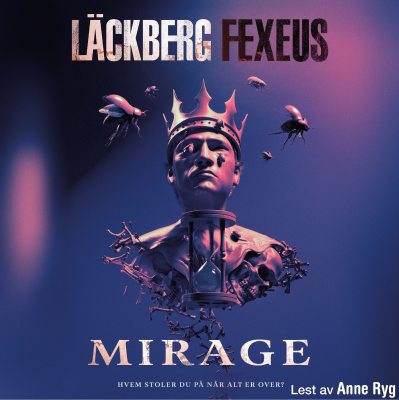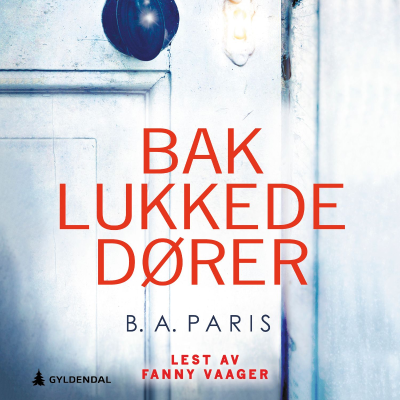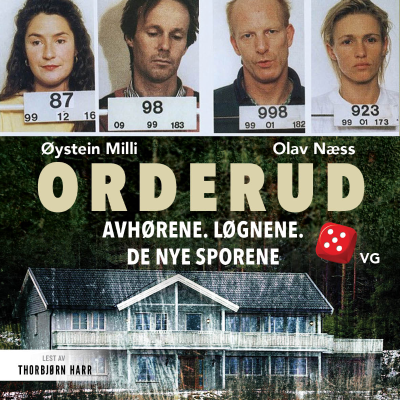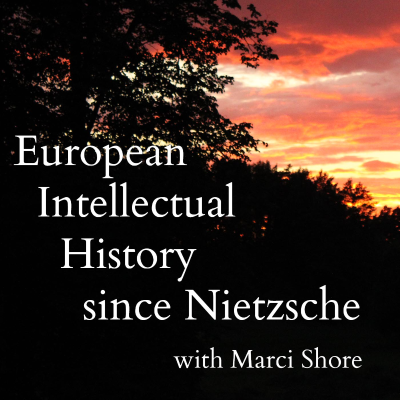
European Intellectual History since Nietzsche
Podkast av Marci Shore
Ideas matter. They cross borders; they are cosmopolitan by their nature. Intellectual history is a history of intertwining conversations, a history of...
Prøv gratis i 14 dager
Etter prøveperioden kun 99,00 kr / Måned.Avslutt når som helst.
Alle episoder
25 Episoder“When they stormed the Bastille they forgot the Sorbonne.”—Hélène Cixous, 1998. HIST 271/HUMS 339: European Intellectual History since Nietzsche is a survey course designed to introduce students to the dominant trends in modern European intellectual history. The class aims to sketch a narrative arc from the late 18th century transition to modernity through the late 20th century transition to post-modernity. Following an overview of the Enlightenment and Romanticism, we move through Hegelianism and Marxism and then on to Nietzsche’s declaration of the death of God. (God had been multifunctional, fulfilling epistemological, ontological and ethical roles. His death left an enormous empty space. Much of modern thought could be described as an attempt to replace God.) Topics include Marxism-Leninism, psychoanalysis, expressionism, structuralism, phenomenology, existentialism, anti-politics, and deconstruction. Authors include Nietzsche, Lenin, Kafka, Freud, Husserl, de Beauvoir, Heidegger, Arendt, Adorno, Sartre, Girard, Foucault, Derrida and Havel. With Marci Shore, Associate Professor of History at Yale. This lecture is also available to watch on YouTube. [https://www.youtube.com/watch?v=teqykibLJwE&list=PLh9mgdi4rNezUjm7niGdUWjnL0lHSDh0U&index=25&ab_channel=YaleCourses]
“In the hut’s book, glancing towards the well’s star, in the hope of a word to come.”—Paul Celan, 1966. HIST 271/HUMS 339: European Intellectual History since Nietzsche is a survey course designed to introduce students to the dominant trends in modern European intellectual history. The class aims to sketch a narrative arc from the late 18th century transition to modernity through the late 20th century transition to post-modernity. Following an overview of the Enlightenment and Romanticism, we move through Hegelianism and Marxism and then on to Nietzsche’s declaration of the death of God. (God had been multifunctional, fulfilling epistemological, ontological and ethical roles. His death left an enormous empty space. Much of modern thought could be described as an attempt to replace God.) Topics include Marxism-Leninism, psychoanalysis, expressionism, structuralism, phenomenology, existentialism, anti-politics, and deconstruction. Authors include Nietzsche, Lenin, Kafka, Freud, Husserl, de Beauvoir, Heidegger, Arendt, Adorno, Sartre, Girard, Foucault, Derrida and Havel. With Marci Shore, Associate Professor of History at Yale. This lecture is also available to watch on YouTube. [https://www.youtube.com/watch?v=DlWcK5PesPc&list=PLh9mgdi4rNezUjm7niGdUWjnL0lHSDh0U&index=24&ab_channel=YaleCourses]
“In the post-totalitarian system, this line runs de facto through each person, for everyone in his or her own way is both a victim and a supporter of the system.”—Václav Havel, “The Power of the Powerless.” HIST 271/HUMS 339: European Intellectual History since Nietzsche is a survey course designed to introduce students to the dominant trends in modern European intellectual history. The class aims to sketch a narrative arc from the late 18th century transition to modernity through the late 20th century transition to post-modernity. Following an overview of the Enlightenment and Romanticism, we move through Hegelianism and Marxism and then on to Nietzsche’s declaration of the death of God. (God had been multifunctional, fulfilling epistemological, ontological and ethical roles. His death left an enormous empty space. Much of modern thought could be described as an attempt to replace God.) Topics include Marxism-Leninism, psychoanalysis, expressionism, structuralism, phenomenology, existentialism, anti-politics, and deconstruction. Authors include Nietzsche, Lenin, Kafka, Freud, Husserl, de Beauvoir, Heidegger, Arendt, Adorno, Sartre, Girard, Foucault, Derrida and Havel. With Marci Shore, Associate Professor of History at Yale. This lecture is also available to watch on YouTube. [https://www.youtube.com/watch?v=94b025iHtAw&list=PLh9mgdi4rNezUjm7niGdUWjnL0lHSDh0U&index=23&ab_channel=YaleCourses]
“I often describe deconstruction as something which happens. It’s not purely linguistic, involving text or books. You can deconstruct gestures, choreography. That’s why I enlarged the concept of text.”—Jacques Derrida. HIST 271/HUMS 339: European Intellectual History since Nietzsche is a survey course designed to introduce students to the dominant trends in modern European intellectual history. The class aims to sketch a narrative arc from the late 18th century transition to modernity through the late 20th century transition to post-modernity. Following an overview of the Enlightenment and Romanticism, we move through Hegelianism and Marxism and then on to Nietzsche’s declaration of the death of God. (God had been multifunctional, fulfilling epistemological, ontological and ethical roles. His death left an enormous empty space. Much of modern thought could be described as an attempt to replace God.) Topics include Marxism-Leninism, psychoanalysis, expressionism, structuralism, phenomenology, existentialism, anti-politics, and deconstruction. Authors include Nietzsche, Lenin, Kafka, Freud, Husserl, de Beauvoir, Heidegger, Arendt, Adorno, Sartre, Girard, Foucault, Derrida and Havel. With Marci Shore, Associate Professor of History at Yale. This lecture is also available to watch on YouTube. [https://www.youtube.com/watch?v=nCGW_H7s7Q4&list=PLh9mgdi4rNezUjm7niGdUWjnL0lHSDh0U&index=22&ab_channel=YaleCourses]
“Power is everywhere; not because it embraces everything, but because it comes from everywhere.”—Michael Foucault, The History of Sexuality vol. I. HIST 271/HUMS 339: European Intellectual History since Nietzsche is a survey course designed to introduce students to the dominant trends in modern European intellectual history. The class aims to sketch a narrative arc from the late 18th century transition to modernity through the late 20th century transition to post-modernity. Following an overview of the Enlightenment and Romanticism, we move through Hegelianism and Marxism and then on to Nietzsche’s declaration of the death of God. (God had been multifunctional, fulfilling epistemological, ontological and ethical roles. His death left an enormous empty space. Much of modern thought could be described as an attempt to replace God.) Topics include Marxism-Leninism, psychoanalysis, expressionism, structuralism, phenomenology, existentialism, anti-politics, and deconstruction. Authors include Nietzsche, Lenin, Kafka, Freud, Husserl, de Beauvoir, Heidegger, Arendt, Adorno, Sartre, Girard, Foucault, Derrida and Havel. With Marci Shore, Associate Professor of History at Yale. This lecture is also available to watch on YouTube. [https://www.youtube.com/watch?v=tyeGAGus-oY&list=PLh9mgdi4rNezUjm7niGdUWjnL0lHSDh0U&index=21&ab_channel=YaleCourses]
Tilgjengelig overalt
Lytt til Podimo på telefonen, nettbrettet, datamaskinen eller i bilen!
Et univers av underholdning på lyd
Tusenvis av lydbøker og eksklusive podkaster
Ingen annonser
Ikke kast bort tid på å lytte til annonser når du lytter til Podimos innhold.
Prøv gratis i 14 dager
Etter prøveperioden kun 99,00 kr / Måned.Avslutt når som helst.
Eksklusive podkaster
Uten reklame
Gratis podkaster
Lydbøker
20 timer i måneden

